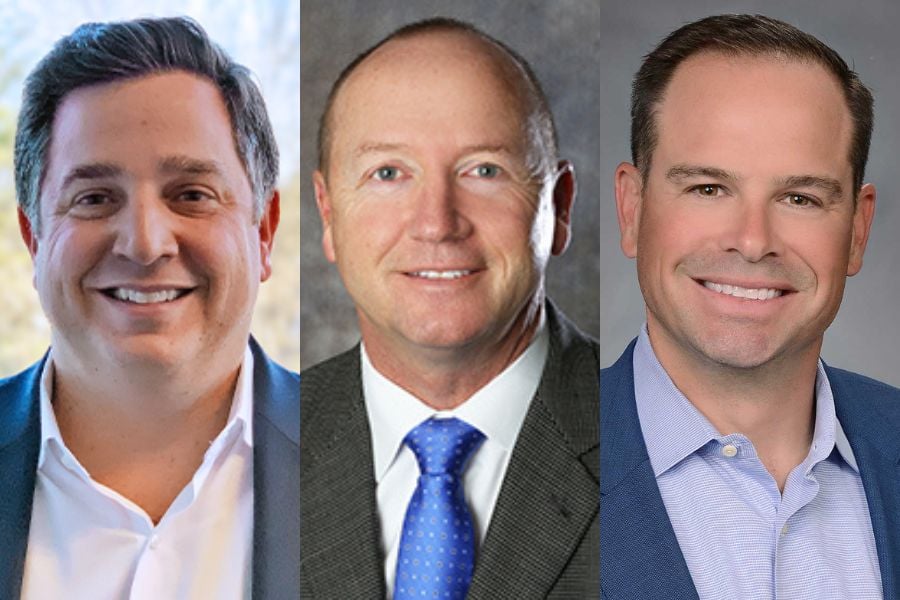

The Republican National Convention kicks off tonight after a dramatic weekend which saw an assassination attempt on former President Donald Trump. The stakes could not be higher in an election rematch that most betting markets and political pundits see as a near coin flip. Americans from coast-to-coast, both red and blue states, will be tuning in for the pageantry and the politics emanating from the GOP’s Milwaukee gathering.
So too will America’s financial advisors.
“The political landscape and reality are material factors in the investment planning process as much as anything else. Fiscal policy drives regulation and government spending priorities, which in turn affect industries and sectors of the economy. As a result, we must consider election outcomes in our security selection process,” said John Macielag, president of All Season Capital Advisory at Stifel Independent Advisors.
Matt Liebman, CEO of Amplius Wealth Advisors, meanwhile, does not believe clients should base their financial or investment plan on election results. As a rule, he feels they should focus on “long-term horizons rather than short-term politics.”
That said, he does believe that elections have consequences in terms of policies that impact economic growth and capital markets.
“While we do not generally like to make short-term trading decisions around election related volatility, we will focus on potential long-term sector and segment impact of policy changes,” said Liebman.
Thomas Goodson, founder and CEO of The AmeriFlex Group, a hybrid RIA with approximately $12.8 billion in total client assets, says there will indeed be some macro trends that would be supported by a Democratic or Republican win in November, such as which kind of energy to invest in or if there will be more federal employees or fewer.
Nevertheless, Goodson believes the high probability of a split government with the congressional majority falling to one party and the White House to another will likely blunt any significant impact from a specific policy.
“When considering portfolio allocations, non-political factors, such as the potential for growth short and long term and the importance of a sector to the overall global economy, are more important than short-term, US national political issues. Frankly, profits and company values related to those profits will always dominate market returns,” said Goodson.
Rick Wedell, president & CIO at RFG Advisory, says he typically takes into account that an election is happening, but does not try to predict the election results or the market reaction to them. Instead, he prepares client portfolios for a possible increase in volatility.
“Bringing portfolios into balance if they have drifted over the course of the year, making sure we are balanced with respect to particular high volatility sectors, making sure our fixed income portfolios are where we’d like them to be. All of this is in an effort to prepare for the market to be volatile, as opposed to gearing the portfolio for one particular direction or another,” said Wedell.
On the topic of volatility, Andrew Mescon, CEO of Ballast Rock Private Wealth, says he closely monitors all significant political events that have the potential to impact both the economy and his clients. However, he says his goal is to create portfolios diversified enough across public and private markets “to sustain consistent, lower volatility performance no matter the party in power and across business cycles.”
Chuck Etzweiller, chief research officer at Nepsis, says this election pits a pair of Presidents against each other, which means the element of uncertainty of economic policy is eliminated.
“Savvy investors, good, bad or indifferent, know what they are getting with both candidates and that is paramount to eliminating a major unknown,” said Etzweiller. “History shows that the party affiliation of the President is irrelevant as far as the difference in returns are concerned. Hence, investors should stay anchored in their plan and not deviate from it.”
In terms of specific areas that might get a Trump bump, Damon Polistina, head of research at Eaglebrook, believes the crypto market would most likely react positively to an election cycle in which the Republican party took seats in the Senate and House of Representatives and won the presidential race.
“The crypto market generally has a positive view of the Republican party relative to the Democratic party because of each party's prior rhetoric and recent actions,” said Polistina.
Finally, Michael Leverty, founder of Leverty Financial Group, says he will be watching the action from Milwaukee like everybody else. However, he maintains he will not make portfolio allocation adjustments based solely on election outcomes or predictions.
“We recognize that clients often have concerns regarding election results, but we emphasize maintaining a diversified portfolio and avoiding reactionary changes based on political events. This approach helps mitigate the risk associated with short-term market fluctuations and keeps our clients long term objectives on track,” said Leverty.
And along similar lines, Jay Beynon, financial adviser with Axió Capital Advisors at Stifel Independent Advisors, says political events and election outcomes certainly have an impact on his investment selection. But right now he is more concerned about the companies in his portfolio, as well as the fact that “the overall markets currently look over-bought versus who will be elected the next president.”

Relationships are key to our business but advisors are often slow to engage in specific activities designed to foster them.

Whichever path you go down, act now while you're still in control.

Pro-bitcoin professionals, however, say the cryptocurrency has ushered in change.

“LPL has evolved significantly over the last decade and still wants to scale up,” says one industry executive.

Survey findings from the Nationwide Retirement Institute offers pearls of planning wisdom from 60- to 65-year-olds, as well as insights into concerns.
Streamline your outreach with Aidentified's AI-driven solutions
This season’s market volatility: Positioning for rate relief, income growth and the AI rebound
